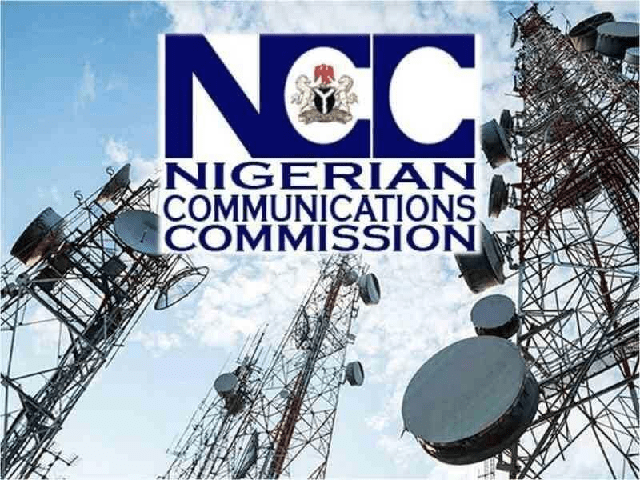National Issues
Telecommunications Sector And Its Contribution To The Nigerian Economy: Challenges And Opportunities -By Anna Plangnan Friday
Furthermore, the high cost of services, particularly mobile data, remains a barrier to widespread access to ICT. Although mobile data costs have decreased over the years, they remain relatively high compared to other countries in Africa. The affordability of internet services is a key issue, as it limits the ability of low-income Nigerians to benefit fully from the digital economy.

The telecommunications sector in Nigeria has evolved into one of the most significant contributors to the country’s economy, playing a pivotal role in driving growth, job creation, and technological advancement. Over the past two decades, the sector has witnessed remarkable transformations, driven by the advent of mobile technology and the liberalization of the telecommunications market. Today, telecommunications are not only a fundamental part of Nigeria’s infrastructure but also a key enabler of economic development, contributing substantially to the nation’s GDP. However, while the sector’s contributions have been commendable, it faces several challenges that need to be addressed to ensure its continued growth and development.
The rise of mobile networks in Nigeria, particularly the rapid expansion of GSM services, has reshaped the landscape of communication. With over 200 million mobile subscribers, Nigeria is one of the largest telecommunications markets in Africa. According to the Nigerian Communications Commission (NCC), the telecommunications sector contributed approximately 9% to the nation’s GDP in 2020, underscoring its growing significance. The sector also provides jobs for millions, both directly and indirectly, ranging from network engineers to customer service personnel, as well as opportunities for ancillary industries such as mobile handset manufacturing, mobile banking, and digital services.
One of the most significant contributions of the telecommunications sector to the Nigerian economy is its role in enhancing access to information and communication technologies (ICT), which are vital for education, healthcare, and business. Mobile phones have become an essential tool for millions of Nigerians, allowing them to stay connected, access the internet, and engage in e-commerce. Digital financial services, such as mobile money, have also flourished, providing a lifeline for millions of unbanked Nigerians. The rise of e-commerce platforms and the digital economy is further solidifying the sector’s contribution to economic growth.
In addition to its role in economic growth, the telecommunications sector has also contributed to improving governance and public services. Government services, such as digital identification, voter registration, and e-health initiatives, have become more accessible through mobile platforms, improving service delivery and enhancing citizen engagement. The expansion of broadband internet, particularly through 4G and 5G technologies, holds the potential to further transform sectors such as education, healthcare, and manufacturing, enabling Nigeria to leapfrog in terms of technological development.
Despite these successes, the telecommunications sector faces significant challenges that impede its full potential. One of the key obstacles is the issue of inadequate infrastructure. Nigeria’s power supply remains unreliable, and many telecommunications towers and data centers rely on diesel-powered generators, leading to high operational costs. This power challenge not only increases the cost of service delivery but also affects the reliability and quality of services provided by telecommunications companies. The lack of consistent electricity supply is further exacerbated by the country’s insufficient broadband infrastructure, which remains limited outside urban centers.
Additionally, regulatory challenges continue to hinder the sector’s growth. While the Nigerian Communications Commission (NCC) has made strides in regulating the industry, there is often a lack of consistency in enforcement. Frequent changes in policies, taxes, and licensing requirements have created an unstable business environment, making it difficult for telecom operators to plan for long-term investments. Furthermore, the sector has faced concerns regarding network security, as Nigeria has experienced several incidents of cyberattacks on both private and government platforms. The growing threat of cybercrime requires urgent attention to ensure that digital communication remains secure and reliable.
The issue of network congestion and poor quality of service remains another critical challenge in the telecommunications sector. Despite the rapid growth in mobile subscriptions, many areas in Nigeria still experience poor network coverage, dropped calls, and slow internet speeds. This is particularly evident in rural areas where infrastructure is limited. Network providers need to invest in expanding and upgrading their infrastructure to meet the growing demand for data services.
Furthermore, the high cost of services, particularly mobile data, remains a barrier to widespread access to ICT. Although mobile data costs have decreased over the years, they remain relatively high compared to other countries in Africa. The affordability of internet services is a key issue, as it limits the ability of low-income Nigerians to benefit fully from the digital economy.
Despite these challenges, the future of the telecommunications sector in Nigeria holds significant promise. The advent of 5G technology is expected to revolutionize the sector, providing faster internet speeds, improved network reliability, and enabling the development of new technologies such as the Internet of Things (IoT) and smart cities. To tap into these opportunities, Nigeria must prioritize improving its infrastructure, especially electricity supply and broadband connectivity, while creating an enabling regulatory environment that fosters investment and innovation.
In conclusion, the telecommunications sector in Nigeria has made remarkable strides and plays a critical role in the nation’s economy. However, addressing the challenges of infrastructure, regulatory consistency, network quality, and affordability will be key to unlocking the full potential of the sector. With the right policies, investments, and a focus on innovation, the telecommunications sector can continue to drive Nigeria’s economic growth and contribute to its development in the digital age.
Anna Plangnan Friday is a 300 level student from Mass Communication Department University of Maiduguri.










